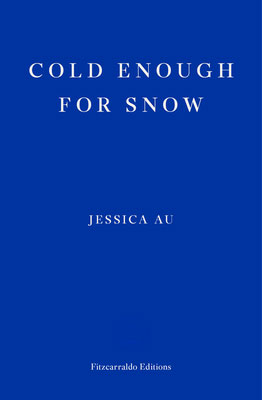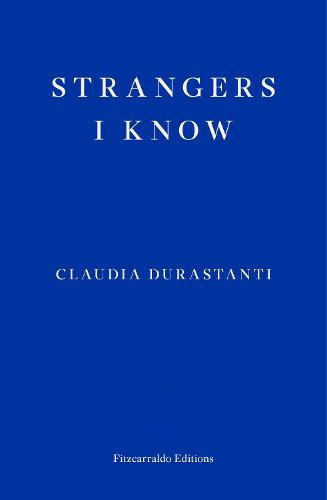

Strangers I Know, Claudia Durastanti (Fitzcarraldo Editions)
Cold Enough for Snow, Jessica Au (Fitcarraldo Editions)
There seems to be a new genre emerging, that mixes novels and memoir or biography, or perhaps fiction so cleverly persuasive and realistic that we want it to be ‘true’. As someone who has little time for whether a book is true or not (poets are especially prone to thinking this is a justification for their writing) it is perhaps disingenuous of me to mention it, but these two books, along with Annabel Dover’s Florilega – which I recently reviewed, clearly want to blur boundaries and engage us with the lives they contain.
Claudia Durastanti’s Strangers I Know is in some ways ironically titled, her narrator doesn’t know the strangers who are her parents at all, but then the title clearly says she knows them as strangers. Or does it? Her parents are deaf, and stubbornly remain apart from the world, each other, and their daughter. They even have different memories of how the two of them met, and seem to live mostly different lives, often in different countries.
Threaded between them, between Italy, England and the USA, the narrator also lives a different life, reflecting upon her upbringing, the different classes, cultures and relationships she is part of. Her story is broken up into groups, clusters of thematic sections: ‘Family’, ‘Travels’ (subdivided into America, Italy and England), ‘Health’, ‘Work and Money’, ‘Love’ and the final ‘What’s Your Sign?’ Each cluster reveals new versions of the narrator and her family, new relatives, new relationships, new considerations, memories and interpretations.
I love the way the book swings into specificities I can relate to. The narrator mentions punk bands I love, places I have been to, books I have read. Although I sometimes question how authors use cultural objects as a shorthand for description or experience, here they are made good use of. Durastanti is a superb writer whose text is fluid, descriptions taut and original, whose whole novel gradually unfolds into a web of associations, possibilities and interwoven stories within stories that highlight how families, distant and near, misunderstand, confuse and love each other.
If I have any complaints it is these: firstly the clunky ending, which asks ‘Is it a true story?’ The whole book asks this implicitly, the reader does not need it spelt out. And secondly, which is a bit of an own goal, the ‘Afterword’ mentions the idea of the book being published as movable sections. This has, of course, been done before by various publishers, and I am disappointed that Fitzcarraldo didn’t find a way to do this. Of course, if they hadn’t mentioned it I wouldn’t have thought about it. Now, however, the thematic grouping seems a compromise. That aside, however, it’s an involving, engaging, thought-provoking and moving book.
Jessica Au’s book is slimmer, slighter and somewhat distant and cold. The narrator and her mother take a reconciliatory trip to Tokyo together. Their visits, meals and stilted conversation (especially on the mother’s side) is intertwined with the narrator’s memories of her childhood and overlaid with her own interpretations of what is happening. I found it disengaged, vague in its descriptions and language, and somewhat tedious, even at only 94 pages.
The cover blurb suggests that the book is not only spoken by the narrator, but that the mother’s voice may be present too; also that the volume is elegaic. Neither of these seemed true, though it is clearly a one-sided version of the trip and the daughter is not always willing to engage with her parent: she takes herself off for a solo escape mid-trip, and seems to impose her schedule on the pair. It is the distance and non-specificity of the main voice here I found dull, it is mannered and uninvolving.
Rupert Loydell
